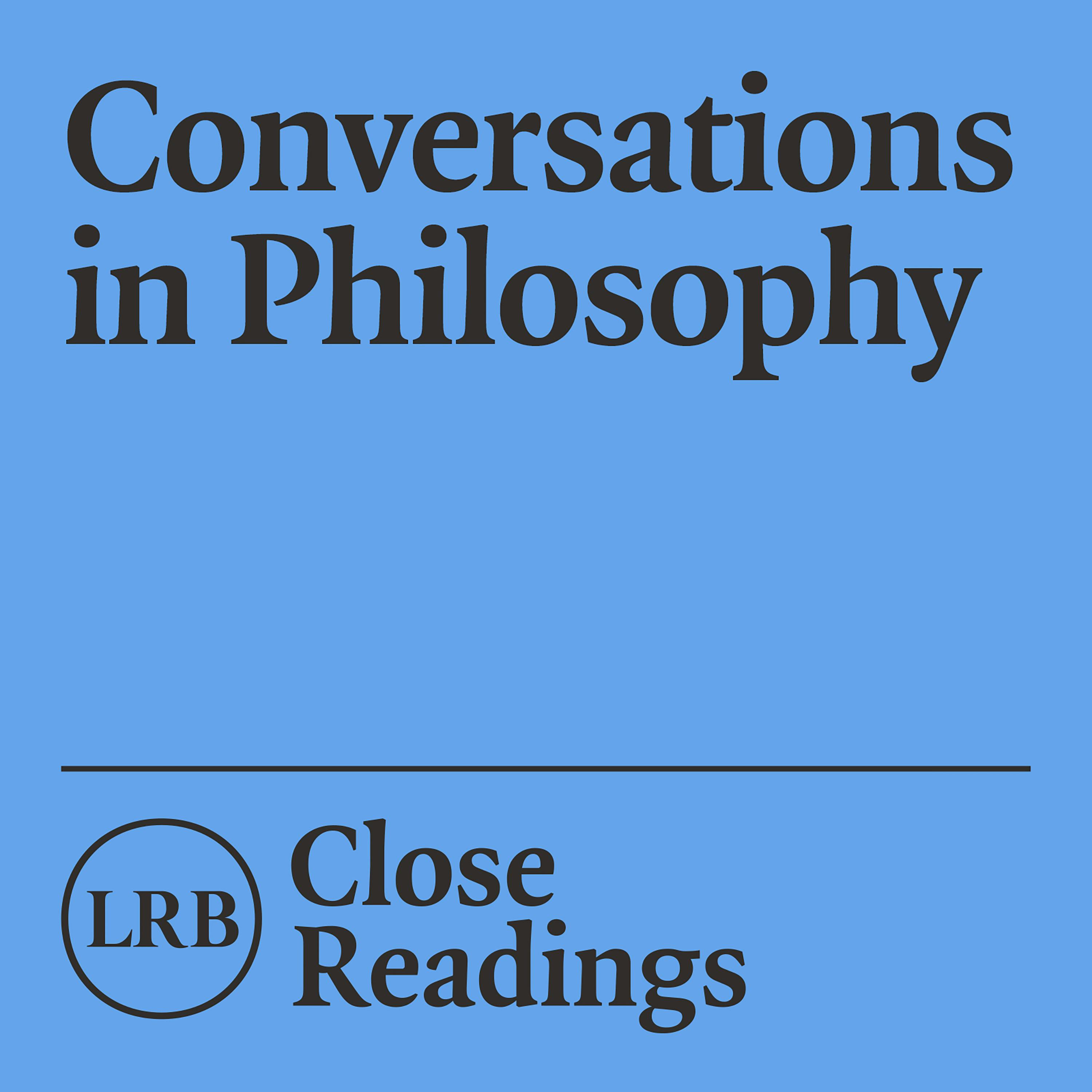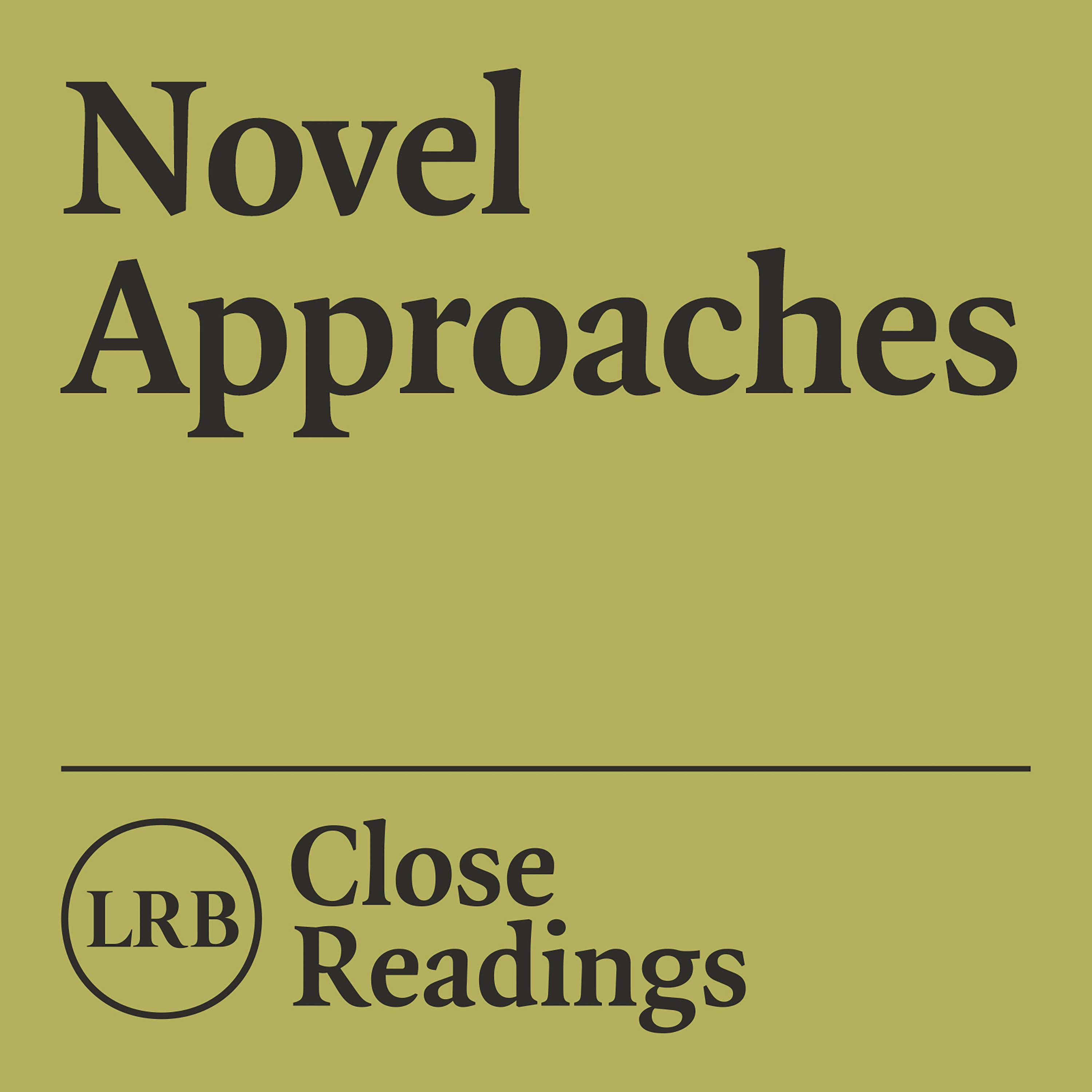Latest Episodes
Most Recent
LRB Audio
Podcasts and audiobooks from the London Review of Books.
A multi-series podcast subscription exploring different themes and periods of literature through selections of key works.
Discover the LRB’s new audiobook collections.
Our six-part series hosted by Andrew O'Hagan: listen to the full series with bonus material, including extended and additional interviews and clips.
More Episodes
As long as there have been poets, they have been writing war elegies. In this episode, Mark and Seamus discuss responses to the American Civil War (Walt Whitman), both world wars (W.B. Yeats, Wilfred...
· 12 min 54 sec
As long as there have been poets, they have been writing war elegies. In this episode, Mark and Seamus discuss responses to the American Civil War (Walt Whitman), both world wars (W.B. Yeats, Wilfred...
· 12 min 9 sec
James Hogg’s ghoulish metaphysical crime novel 'The Private Memoirs and Confessions of a Justified Sinner' (1824) was presented as a found documented dating from the 17th century, describing in differ...
· 32 min 58 sec
James Hogg’s ghoulish metaphysical crime novel 'The Private Memoirs and Confessions of a Justified Sinner' (1824) was presented as a found documented dating from the 17th century, describing in differ...
· 14 min 20 sec
Most of what we believe we believe on faith, even those beliefs we hold to be based on scientific fact. This assertion lies at the heart of William James’s essay ‘The Will to Believe’, originally deli...
· 18 min 14 sec
Most of what we believe we believe on faith, even those beliefs we hold to be based on scientific fact. This assertion lies at the heart of William James’s essay ‘The Will to Believe’, originally deli...
· 17 min 29 sec
‘I want to write a poem of a new class — a Don Juan, without the mockery and impurity,’ Elizabeth Barrett Browning wrote to a friend in 1844, ‘and admitting of as much philosophical dreaming and digre...
· 18 min 40 sec
‘I want to write a poem of a new class — a Don Juan, without the mockery and impurity,’ Elizabeth Barrett Browning wrote to a friend in 1844, ‘and admitting of as much philosophical dreaming and digre...
· 17 min 55 sec
Tennyson described 'In Memoriam' as ‘rather the cry of the whole human race than mine’, and the poem achieved widespread acclaim as soon as it was published in 1850, cited by Queen Victoria as her hab...
· 13 min 13 sec
Tennyson described In Memoriam as ‘rather the cry of the whole human race than mine’, and the poem achieved widespread acclaim as soon as it was published in 1850, cited by Queen Victoria as her habit...
· 12 min 28 sec
‘With Potocki,’ Italo Calvino wrote, ‘we can understand that the fantastic is the exploration of the obscure zone where the most unrestrained passions of desire and the terrors of guilt mix together.’...
· 15 min 50 sec
‘With Potocki,’ Italo Calvino wrote, ‘we can understand that the fantastic is the exploration of the obscure zone where the most unrestrained passions of desire and the terrors of guilt mix together.’...
· 15 min 5 sec
For Nietzsche, Schopenhauer’s genius lay not in his ideas but in his heroic indifference, a thinker whose value to the world is as a liberator rather than a teacher, who shows us what philosophy is re...
· 30 min 26 sec
For Nietzsche, Schopenhauer’s genius lay not in his ideas but in his heroic indifference, a thinker whose value to the world is as a liberator rather than a teacher, who shows us what philosophy is re...
· 29 min 41 sec
In North and South (1855), Margaret Hale is uprooted from her sleepy New Forest town and must adapt to life in the industrial north. Through her relationships with mill workers and a slow-burn romance...
· 25 min 49 sec
In ‘North and South’ (1855), Margaret Hale is uprooted from her sleepy New Forest town and must adapt to life in the industrial north. Through her relationships with mill workers and a slow-burn roman...
· 25 min 4 sec
Philip Larkin was terrified of death from an early age; Thomas Hardy contemplated what the neighbours would say after he had gone; and Sylvia Plath imagined her own death in vivid and controversial wa...
· 14 min 50 sec
Philip Larkin was terrified of death from an early age; Thomas Hardy contemplated what the neighbours would say after he had gone; and Sylvia Plath imagined her own death in vivid and controversial wa...
· 14 min 5 sec
In the stories of Franz Kafka we find the fantastical wearing the most ordinary, realist dress. Though haunted by abjection and failure, Kafka has come to embody the power and potential of literary im...
· 16 min 6 sec
In the stories of Franz Kafka we find the fantastical wearing the most ordinary, realist dress. Though haunted by abjection and failure, Kafka has come to embody the power and potential of literary im...
· 16 min 51 sec













